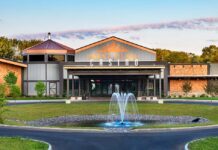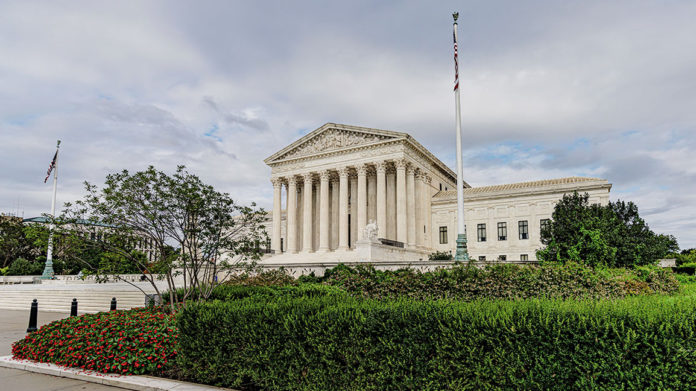WASHINGTON, D.C. – U.S. Representative Melanie Stansbury (NM-01), a member of the Subcommittee for Indigenous Peoples of the United States, asked tribal witnesses to help Congress identify a path forward to defend tribal sovereignty in light of the Supreme Court’s Oklahoma v. Castro-Huerta decision.
During the oversight hearing, Rep. Stansbury and the Subcommittee heard witness testimony from three panels to examine the implications of the recent Castro-Huerta ruling. The 5-4 decision issued in June erodes bedrock protections for tribal sovereignty and disregards two centuries of legal precedent.
“I believe that this decision made by the majority of our Supreme Court is a direct affront to tribal sovereignty and to tribal nationhood, and upends generations of settled law, the U.S.-tribal relationship, hundreds of treaties, and is an affront to our Constitution in which we recognize tribal sovereignty as inherent to our tribal nations,” said Rep. Stansbury. “I strongly believe that we need to support the tribal nations who would like to see a legislative fix to this decision.”
Rep. Stansbury then asked the panel of tribal witnesses, including Hon. Jonodev Chaudhuri, Ambassador of the Muscogee Creek Nation, to describe their thoughts on the best ways to build a reasonable consensus at the congressional level to pave a path forward for legislation to protect tribal sovereignty.
“We do believe that action is needed now, and we support something that addresses things collectively,” said Hon. Jonodev Chaudhuri. “We don’t call it a fix, we call it strengthening public safety issues in Indian Country. Thank you so much for the question.”
Rep. Stansbury concluded her questioning, noting, “We’re hearing the need to get more resources to support tribal courts and to beef up DOJ and BIA law enforcement. We know that this is a huge and immediate need across Indian Country. We stand with you, and we will be working very closely with tribal nations to address this issue.”
In June, Rep. Stansbury released a statement condemning the Supreme Court’s 5-4 decision in Oklahoma v. Castro-Huerta, which casts aside more than two centuries of precedent recognizing tribal sovereignty.
Rep. Stansbury’s remarks as delivered:
“Thank you, Madam Chairwoman. And I want to start by saying thank you to all of our tribal leaders, and welcoming you to our Committee and to Washington, D.C. It’s great to see so many old friends and wonderful to have you here, and thank you to Chairwoman Leger Fernández and our Ranking Member for this important hearing.
I want to start with my position on this issue, which is that I believe that this decision by the majority of our Supreme Court is a direct affront to tribal sovereignty and to tribal nationhood, and upends, of course, generations of settled law, the U.S.-tribal relationship, hundreds of treaties, and is an affront to our Constitution in which we recognize tribal sovereignty as inherent to our tribal nations. And so, I strongly believe that we need to support the tribal nations who would like to see a legislative fix to this decision.
But my concern and the question I want to direct to our tribal leaders who are here today, and to those who are listening across our tribal nations in the U.S., is how do we build a process at the Congressional level to get to some form of consensus about the legislative path?
I know some of the previous questions have touched on this. I served on a panel just last week with a couple of dozen tribal leaders asking the question, ‘What should the legislative fix look like?’ and received at least six different answers based on six different legal theories and basis. You know, I’ve heard more expansive responses that would like to overhaul and fix previous case law and statutory problems with how justice systems are supported in our tribal nations. I’ve seen more narrow fixes.
And so my question for our panelists today is really a process question more than a substance question which is, is there a need to seek an immediate fix that reaffirms McGirt or addresses a fatal flaw before the end of this Congress, while we engage in a much more robust consultation process with the executive branch so that we can hear from all of our tribal nations, and your thoughts about how we build a reasonable consensus on a legislative path forward.
And I think if it’s okay, Madam Chair, just going in the order of the witnesses testimony, starting with our Honorable Ambassador from Muscogee Creek.
Thank you so much, and mindful that I actually have run out of time here with this, I’m going to submit this, Madam Chairwoman, as a question for the record to all of our witnesses. And as I stated, we would love to hear from tribal nations across the country about how to build that consensus process, and the question about acting expediently before the end of this Congress, and whether it’s a both and, doing something now, as well as doing something more extensive.
Finally, I just want to say that we are working very hard to get a real budget passed and we know where there’s going to be a short term CR. We’re hearing the need to get more resources to support tribal courts, to beef up DOJ and BIA law enforcement, and we know that this is a huge immediate need across Indian Country. We stand with you and we will be working very closely with tribal nations to address this issue. Thank you, Madam Chairwoman.”













































